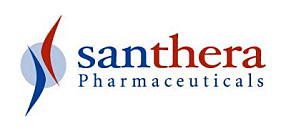Potential DMD Treatment, Raxone, Designated ‘Orphan Drug’ by Australian Regulators
Written by |

 Australia’s drug regulatory agency, the Therapeutic Goods Administration (TGA), has granted Santhera Pharmaceuticals’ lead product Raxone (idebenone) orphan drug designation for the treatment of Duchenne muscular dystrophy (DMD). Raxone (sold in some markets under the trade name Catena) has already received a similar designation from European, Swiss, and U.S. regulatory authorities.
Australia’s drug regulatory agency, the Therapeutic Goods Administration (TGA), has granted Santhera Pharmaceuticals’ lead product Raxone (idebenone) orphan drug designation for the treatment of Duchenne muscular dystrophy (DMD). Raxone (sold in some markets under the trade name Catena) has already received a similar designation from European, Swiss, and U.S. regulatory authorities.
Phase 3 trial results also have demonstrated the efficacy of Raxone in slowing down the loss of respiratory function in DMD patients.
“We are delighted that the Australian authority has granted the orphan drug designation for Raxone in DMD,” Thomas Meier, Santhera’s CEO, said in a press release. “This decision underlines the need for a therapy for DMD and the potential role Raxone might have as an effective treatment. We are grateful to the DMD patient organization ‘Save Our Sons-Duchenne Australia’ which actively supported us in this successful application.”
Orphan drug designation is given investigational treatments for rare disorders, which the TGA defines as diseases affecting fewer than 2,000 people in that country. If approved, a drug with this designation has market exclusivity in Australia of up to five years.
Raxone for the treatment of Duchenne muscular dystrophy
Santhera describes Raxone as a synthetic short-chain benzoquinone and a cofactor for the enzyme NAD(P)H:quinone oxidoreductase (NQO1). The drug is designed to stimulate mitochondrial electron transport, reducing and scavenging reactive oxygen species (ROS or free radicals) and supplementing cellular energy that which are highly dependent on mitochondrial activity.
After the safety and efficacy of Raxone was investigated in the DELPHI exploratory Phase 2 trial, the confirmatory Phase 3, double-blind, placebo-controlled DELOS trial randomized 64 patients, ages 10-18 and not taking glucocorticoid steroids, to receive either Raxone (900 mg/day) or a placebo. The DELOS trial met its primary endpoint, demonstrating that Raxone can slow loss of respiratory function and reduce bronchopulmonary complications.
Specifically, the study evaluated the effect of Raxone on Peak Expiratory Flow % predicted (PEF%p) from baseline to week 52, and found a significant decline in placebo-treated patients but a non-significant decline among those given Raxone. The difference between the two groups (Raxone, 31 patients; placebo, 33 patients) was a statistically significant 5.96%p at week 52, the company reported.
A statistically significant treatment effect was also seen at week 26 and week 39 in PEF%p.
“Progressive lung disease and irreversible loss of lung function are a main cause of morbidity and early mortality in DMD,” notes principal investigator Gunnar M. Buyse MD, PhD, a professor of Child Neurology at the University Hospitals Leuven in Leuven, Belgium, in a release. “The statistically significant and clinically relevant outcomes of primary and secondary endpoints of this Phase III trial coherently demonstrate the therapeutic potential of idebenone in reducing the loss of respiratory function.”
Additional data from the DELOS trial, assessing dynamic inspiratory function, further demonstrated Raxone’s efficacy. The data was recently published online in the journal Pediatric Pulmonology, in the article “Treatment effect of idebenone on inspiratory function in patients with Duchenne muscular dystrophy.”
“These new data expand previously published results with Raxone from the successful phase III DELOS trial which enrolled patients not taking concomitant glucocorticoids,” Meier said in a press release. “Since its completion, the DELOS Study Group has published data demonstrating a statistically significant and clinically relevant benefit of Raxone treatment on expiratory and inspiratory function, a reduced risk of patients treated with Raxone to experience bronchopulmonary complications and a reduced need for systemic antibiotics. These results clearly demonstrate an overall benefit for patients receiving Raxone on multiple pulmonary function outcomes, which is of relevance for patients with DMD.”
Raxone received European Marketing Authorization in 2015 to treatment patients with Leber hereditary optic neuropathy (LHON). In addition to DMD, it is also being investigated as a treatment for primary progressive multiple sclerosis (PPMS).
The EMA’s Committee for Medicinal Products for Human Use (CHMP) is currently assessing a Marketing Authorization Application for Raxone as a treatment for DMD patients with respiratory function decline and not presently taking glucocorticoids. This would include patients who were previously treated with glucocorticoids, and those unwilling or unable to undergo such treatment. The MAA was submitted as a Type II variation of Santhera’s existing marketing authorization for Raxone to treat LHON.
Sources:
Santhera Pharmaceuticals
Pediatric Pulmonology
University Hospitals Leuven
TREAT-NMD





